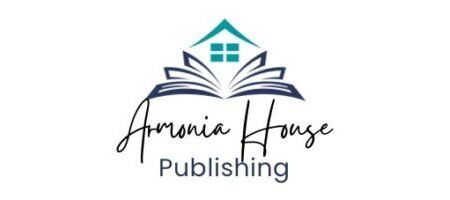Malcolm X once said, “A man who questions his own ability is not going to succeed.” This shows how crucial self-improvement and personal growth are. Reading is a great way to grow, offering insights and strategies to beat challenges and reach your goals.
You’re on a journey of self-discovery, and the right personal growth books can guide you. These top self-improvement books have changed lives by giving practical advice and new views. In this article, we’ll look at some of the best personal growth books to help you reach your full potential.
Key Takeaways
- Discover how reading can foster personal growth and self-improvement.
- Explore a curated list of top self-improvement books.
- Learn how these books can provide practical advice and new perspectives.
- Understand the impact of personal growth books on transforming lives.
- Find the best resources to help you achieve your personal goals.
The Power of Personal Growth Literature
Personal growth literature can change how you see the world and make your life more fulfilling. Self-help books offer insights into your actions, thoughts, and feelings. This helps you understand yourself better.

How Reading Shapes Your Personal Development Journey
Reading books on personal growth can greatly impact your self-improvement journey. It introduces you to new ideas and strategies. These can help you tackle life’s challenges more effectively.
By applying what you learn from these books, you can make real changes in your life.
| Benefits of Reading | Impact on Personal Development |
|---|---|
| Exposure to new ideas | Enhanced creativity and problem-solving skills |
| Strategies for self-improvement | Better goal setting and achievement |
| Different perspectives | Increased empathy and understanding |
The Science Behind Books and Brain Development
Studies show that reading can positively affect brain development. It boosts cognitive function, memory, and can even slow down age-related cognitive decline. This highlights the role of reading in personal growth and development.
Adding reading to your daily routine can unlock the power of personal growth literature. Whether it’s through self-help books that change your life or practical advice on personal development, the right books can spark change.
Best Books for Personal Growth and Improvement
In the world of personal development, some books are key for changing your life. These transformational books for self growth can change how you see things and lead you to a more rewarding life.

Not all personal growth books are the same. So, what makes the best ones stand out?
What Makes a Personal Growth Book Effective
A good personal growth book does more than just teach theory. It gives you practical advice and steps to follow in your everyday life. These books are often written by experts or people who have grown a lot themselves. They share insights and methods to help you get past challenges and reach your goals.
The best books are those that really speak to you. They challenge your views and motivate you to change.
How We Selected These Transformative Reads
We picked our must read personal growth books based on several factors. We looked at the book’s effect on the personal growth community, reviews, and expert recommendations. We chose books that have kept inspiring and motivating readers for years.
We also checked the authors’ backgrounds and how well they explain complex ideas. Our list includes books that can really help you grow personally.
Mindset-Changing Books That Transform Your Thinking
Mindset-changing books can change how you see the world and unlock your potential. They offer more than just knowledge. They help you grow and develop personally.
By changing your mindset, you can overcome obstacles, achieve your goals, and live a more fulfilling life.
“Mindset” by Carol Dweck
Overview
“Mindset” by Carol Dweck introduces the concept of the growth mindset versus the fixed mindset. Dweck explains how our mindset affects our ability to achieve success. She shows how we can cultivate a growth mindset to improve our lives.
Key Features
The book focuses on the differences between a fixed and a growth mindset. It provides insights into how these mindsets impact our behavior and success. It includes practical strategies for adopting a growth mindset.
Pros
Promotes personal growth by encouraging readers to embrace challenges. It enhances resilience by teaching how to learn from failures.
Cons
Some readers may find the concept repetitive if they are already familiar with the growth mindset idea.
Recommendations
Recommended for anyone looking to improve their personal and professional development. It’s particularly useful for parents, educators, and leaders who want to foster a growth mindset in themselves and others.
Click here to get the book Mindset on Amazon.
“Thinking, Fast and Slow” by Daniel Kahneman
Overview
“Thinking, Fast and Slow” by Daniel Kahneman explores the two systems of thinking that shape our decision-making processes. Kahneman, a Nobel laureate, provides insights into how our brains process information and make decisions.
Key Features
The book delves into the fast, intuitive thinking system and the slow, deliberate thinking system. It discusses cognitive biases and how they influence our judgments.
Pros
Enhances understanding of cognitive biases and how they affect our decisions. It improves decision-making skills by highlighting the importance of slow, thoughtful thinking.
Cons
The book can be dense and requires concentration to fully grasp its concepts.
Recommendations
Recommended for readers interested in psychology, economics, and decision-making. It’s ideal for professionals and individuals seeking to make more informed decisions.
| Book Title | Author | Key Concept |
|---|---|---|
| Mindset | Carol Dweck | Growth vs. Fixed Mindset |
| Thinking, Fast and Slow | Daniel Kahneman | Two Systems of Thinking |
Click here to get the book “Thinking, Fast and Slow” from Amazon
Life-Changing Habit Formation Books
Building positive habits is key to personal growth. The right books can help you on this journey. “Atomic Habits” by James Clear and “The Power of Habit” by Charles Duhigg are top picks.
Atomic Habits by James Clear
Overview
“Atomic Habits” is a detailed guide to forming good habits and breaking bad ones. James Clear shares science-backed strategies and techniques.
Key Features
The book focuses on making small changes for big improvements. It uses the Four Laws of Behavior Change: make it obvious, attractive, easy, and satisfying.
Pros
Practical and easy to follow, it’s filled with examples and strategies you can use right away. It’s scientifically grounded, making it a reliable source.
Cons
Some might find the strategies simple or repetitive. But, its simplicity is a strength.
Recommendations
We suggest “Atomic Habits” for those wanting lasting changes. It’s great for a systematic approach to forming habits.
If you are interested in learning more about it, check out the book Atomic Habits available on Amazon.
The Power of Habit by Charles Duhigg
Overview
“The Power of Habit” dives into habit science, offering insights on how to change them. Charles Duhigg tells compelling stories.
Key Features
The book explains the habit loop: cue, routine, reward. It shows how to change habits by understanding this loop. It shares stories of successful habit changes.
Pros
The book is engaging and informative, making complex ideas easy to grasp. It uses real-life examples to illustrate its points.
Cons
Some parts might feel long or anecdotal. But, the stories help make the concepts clearer.
Recommendations
“The Power of Habit” is for those who like stories in their non-fiction. It offers a deep look into why habits work.
| Book Title | Main Focus | Key Takeaway |
|---|---|---|
| Atomic Habits | Building good habits, breaking bad ones | Small changes lead to significant improvements |
| The Power of Habit | Science behind habits and how to change them | Understanding the habit loop is key to transformation |
“You do not rise to the level of your goals. You fall to the level of your systems.” – James Clear, Atomic Habits
Both “Atomic Habits” and “The Power of Habit” are essential for improving your life through better habits. They offer practical advice and engaging stories, whether you prefer a systematic approach or a deeper understanding of habit psychology.
Emotional Intelligence and Self-Awareness Reads
Starting your personal growth journey often means boosting your emotional intelligence. Certain books can help a lot. They focus on emotional intelligence and self-awareness, key for knowing yourself and getting along with others.
“Emotional Intelligence” by Daniel Goleman
“Emotional Intelligence” by Daniel Goleman is a key book. It dives into emotional intelligence and how it affects success in life and work.
Overview
Goleman’s book introduces emotional intelligence. It shows how it’s different from IQ and how you can grow it.
Key Features
The book talks about emotional intelligence’s main parts. These include knowing yourself, controlling your feelings, staying motivated, feeling empathy, and being good with people.
Pros
Deep Understanding: Goleman’s work gives a clear view of emotional intelligence. Useful Tips: It shares ways to improve your emotional smarts.
Cons
Some might find the ideas repeated or too abstract.
Recommendations
We suggest “Emotional Intelligence” for anyone wanting to better their personal and work relationships through emotional insight.
“Daring Greatly” by Brené Brown
“Daring Greatly” by Brené Brown looks at vulnerability and living fully.
Overview
Brown’s book says being vulnerable is a strength, not a weakness. It leads to a more fulfilling life.
Key Features
The book stresses the value of being open, letting go of the need for perfection, and being resilient.
Pros
Uplifting: Brown’s ideas are inspiring and make you think. Practical Advice: It shows how to use these ideas in daily life.
Cons
Some might struggle to apply the idea of vulnerability.
Recommendations
“Daring Greatly” is great for those wanting to be braver and more resilient in life and work.
| Book Title | Author | Key Concept |
|---|---|---|
| Emotional Intelligence | Daniel Goleman | Understanding and developing emotional intelligence |
| Daring Greatly | Brené Brown | The power of vulnerability |
Productivity and Success-Oriented Books
To succeed and boost your productivity, it’s key to read books that offer real strategies and insights. The right books can lead you to your goals with practical advice and inspiring stories. We’ll explore two top books that have helped many people improve their productivity and reach their goals.
“Deep Work” by Cal Newport
Overview
“Deep Work” by Cal Newport teaches how to focus deeply in a world full of distractions. Newport says that being able to concentrate without getting sidetracked is very valuable today.
Key Features
The book shows how to make deep work a part of your daily life. It suggests creating a space for focus and cutting down on shallow tasks.
Pros
Improved focus: It teaches ways to concentrate better. Increased productivity: It helps manage your time better.
Cons
Some might find the advice too strict or hard to follow in their busy lives.
Recommendations
We suggest “Deep Work” to anyone wanting to focus better and be more productive in a world full of distractions.
“The 7 Habits of Highly Effective People” by Stephen Covey
Overview
“The 7 Habits of Highly Effective People” by Stephen Covey is a self-help book. It offers a complete plan for personal and professional growth. Covey outlines seven habits for personal development.
Key Features
The seven habits in the book aim to make you more effective in life and work. They include being proactive and thinking about the end result first.
Pros
Comprehensive framework: It gives a wide view on personal growth. Practical advice: It offers strategies for different situations.
Cons
Some might find the habits too broad or the book too long.
Recommendations
We recommend “The 7 Habits of Highly Effective People” for a detailed guide to personal and professional growth.
Spiritual Growth and Mindfulness Literature
In our search for inner peace, books on spiritual growth and mindfulness are key. They offer deep insights and the power to change us. Some books stand out for their wisdom and ability to transform.
The Power of Now by Eckhart Tolle
Overview
“The Power of Now” by Eckhart Tolle is a guide to living in the moment. Tolle says we can find spiritual enlightenment by letting go of ego and focusing on now.
Key Features
Tolle’s work focuses on mindfulness and living in the present. It teaches us to reject negative thoughts. The book gives practical tips for being more aware and peaceful.
Pros
This book is a clear guide to spiritual growth. It’s great for those wanting to live more mindfully. Tolle’s writing is engaging and simple to follow.
Cons
Some might find it hard to apply Tolle’s ideas in daily life. The book’s philosophical ideas might need more thought.
Recommendations
“The Power of Now” is perfect for deepening your spiritual practice. It’s especially good for beginners in mindfulness.
Man’s Search for Meaning by Viktor Frankl
Overview
“Man’s Search for Meaning” is a memoir by Viktor Frankl. It’s about his time in Nazi concentration camps during World War II. Frankl shares his psychological and philosophical insights from those experiences.
Key Features
The book explores the human search for meaning, even in hard times. Frankl introduces logotherapy, saying finding meaning is what drives us.
Pros
Frankl’s story is powerful and thought-provoking. It shows resilience, hope, and the human spirit. The book proves we can find meaning in adversity.
Cons
The subject matter is heavy and might be emotionally challenging for some.
Recommendations
“Man’s Search for Meaning” is great for those into psychology, philosophy, and history. It’s a compelling read for understanding humanity.
| Book Title | Author | Key Concept |
|---|---|---|
| The Power of Now | Eckhart Tolle | Mindfulness and Living in the Present |
| Man’s Search for Meaning | Viktor Frankl | Logotherapy and Finding Meaning |
These books on spiritual growth and mindfulness help us understand ourselves and the world. By diving into these concepts and practices, we can start a journey towards inner peace and fulfillment. If you want to explore these concepts, check the books on Amazon for more details, by clicking here: The Power of Now; Man’s Search for Meaning
Personal Finance and Wealth Building Books
Understanding personal finance and wealth building is key to your growth journey. Recommended books offer insights into managing your money and building wealth over time.
“Rich Dad Poor Dad” by Robert Kiyosaki
“Rich Dad Poor Dad” by Robert Kiyosaki challenges common money and wealth beliefs.
Overview
This book compares the financial views of two dads. The author’s “poor dad” struggled financially despite being educated. His friend’s “rich dad” succeeded through smart money moves and entrepreneurship.
Key Features
- Contrasting financial philosophies
- Practical advice on financial literacy
- Insights into building wealth
Pros
The book is praised for its easy-to-understand style and valuable lessons. It’s a must-read for anyone wanting to improve their finances.
Cons
Some say the book simplifies financial concepts too much. They also think some advice might not fit everyone.
Recommendations
We suggest “Rich Dad Poor Dad” for those new to personal finance and wealth building. It’s great for beginners.
“The Psychology of Money” by Morgan Housel
“The Psychology of Money” by Morgan Housel explores the link between money and human behavior. It offers insights into managing finances.
Overview
The book looks at the psychological side of making financial decisions. It shows how emotions, biases, and experiences shape our money choices.
Key Features
| Feature | Description |
|---|---|
| Psychological Insights | Understanding how psychology affects financial decisions |
| Case Studies | Real-life examples illustrating key points |
| Practical Advice | Strategies for improving financial management |
Pros
The book is praised for its engaging story and deep insights into money management. It’s a valuable resource for understanding the human side of finance.
Cons
Some readers might find the focus on psychology less practical than straightforward financial advice.
Recommendations
We recommend “The Psychology of Money” for those interested in the psychology of finance. It’s perfect for understanding the behavioral side of financial decisions.
“The way to get started is to quit talking and begin doing.”
Both “Rich Dad Poor Dad” and “The Psychology of Money” offer unique views on personal finance and wealth building. They are great additions to any list of recommended books for personal growth.
Click here to check them out on Amazon: Rich Dad Poor Dad, and The Psychology of Money
Relationship and Communication Improvement Books
Improving your relationships and communication skills can change your life. Good relationships need strong communication, empathy, and understanding. We’ll look at two top books to help you in these areas.
“How to Win Friends and Influence People” by Dale Carnegie
This classic gives you tips to better your relationships and influence others. First published in 1936, it’s still a top self-help book.
Overview
“How to Win Friends and Influence People” teaches you how to make friends and lead. It stresses the importance of understanding and empathizing with others.
Key Features
- Practical strategies for improving relationships
- Insights into human behavior and psychology
- Techniques for influencing others positively
Pros
The book is relatable, with examples you can easily apply. Its timeless principles make it still relevant today.
Cons
Some examples might seem old-fashioned. But the book’s core ideas are forever relevant.
Recommendations
We highly recommend this book for anyone wanting to improve their social skills and build better relationships.
Click here to explore this amazing book!
“Crucial Conversations” by Kerry Patterson et al.
“Crucial Conversations” teaches you to handle tough talks with ease. It’s great for improving communication in tough situations.
Overview
This book gives you a framework for crucial conversations. It teaches you to stay calm, speak clearly, and listen well.
Key Features
- Strategies for managing high-stakes conversations
- Techniques for creating a safe space for dialogue
- Methods for achieving better results through effective communication
Pros
The book offers practical advice you can use right away. It’s especially helpful for leaders and managers.
Cons
Some might find the ideas repetitive if they’ve seen similar concepts before.
Recommendations
“Crucial Conversations” is essential for anyone wanting to improve their communication, especially in tough situations.
| Book Title | Author | Key Takeaway |
|---|---|---|
| How to Win Friends and Influence People | Dale Carnegie | Practical advice on improving relationships |
| Crucial Conversations | Kerry Patterson et al. | Handling difficult conversations effectively |
Personal Development Books for Women
As a woman, you’re on a journey of self-discovery and growth. The right books can guide you. Personal development literature offers knowledge and inspiration on various life aspects. It helps women navigate modern life’s complexities.
“Untamed” by Glennon Doyle
Overview
“Untamed” is a memoir and self-help book. It explores identity, spirituality, and feminism. Doyle shares her journey of breaking free from societal expectations.
Key Features
The book is known for its raw honesty and emotional depth. Doyle’s writing is engaging and easy to connect with.
Pros
Readers love the book’s inspiring message and Doyle’s courage. It’s a call to authenticity and self-acceptance.
Cons
Some find the book too critical of societal norms. This may not resonate with everyone.
Recommendations
“Untamed” is great for women who want to challenge societal norms. It encourages personal growth through self-reflection.
Check it out on Amazon to learn more about it!
“Becoming” by Michelle Obama
Overview
“Becoming” is a memoir about Michelle Obama’s life. It covers her childhood to her time as First Lady. The book shares her personal and professional journey.
Key Features
The memoir is praised for its detailed storytelling. Obama shares her vulnerabilities and strengths. It’s a compelling story of personal development and perseverance.
Pros
Readers love Obama’s inspiring story and the book’s focus on empowerment. It’s motivating for women from all backgrounds.
Cons
Some feel the book focuses too much on Obama’s life as First Lady. This may not be relatable to everyone.
Recommendations
“Becoming” is great for its uplifting message. Obama’s storytelling makes it relatable and inspiring for women seeking guidance.
Don’t miss out; find this book on Amazon!
Leadership and Influence Books
In today’s fast-paced business world, leadership skills are crucial. Developing your ability to lead and influence others can change the game. Leadership and influence books offer valuable knowledge and insights from experts.
“Leaders Eat Last” by Simon Sinek
“Leaders Eat Last” by Simon Sinek is a compelling read. It explores the essence of leadership. Sinek stresses the importance of prioritizing your team’s well-being.
Overview
This book offers a deep dive into leadership through Simon Sinek’s expertise. It focuses on building a culture of trust and cooperation in organizations.
Key Features
The book emphasizes the need for leaders to put their teams first. This fosters a sense of security and trust.
Pros
“Leaders Eat Last” inspires leaders to adopt a more empathetic approach. It encourages a servant-leadership mindset.
Cons
Some readers find the concepts repetitive. Sinek often reinforces his main ideas throughout the book.
Recommendations
If you want to improve your leadership skills and create a positive work environment, “Leaders Eat Last” is a valuable resource.
You can explore this product on Amazon and see why it’s so popular.
“Dare to Lead” by Brené Brown
“Dare to Lead” by Brené Brown challenges traditional leadership norms. Brown advocates for courageous and open leadership.
Overview
Brown’s work highlights the importance of vulnerability and empathy in leadership. She provides actionable advice for leaders.
Key Features
The book explores how leaders can create a culture of bravery and innovation.
Pros
“Dare to Lead” emphasizes the value of vulnerability. It helps leaders become more relatable and authentic.
Cons
Some critics say Brown’s ideas, while inspiring, can be hard to implement in certain cultures.
Recommendations
For leaders wanting to create a courageous and open work environment, “Dare to Lead” offers practical guidance and inspiration.
These leadership and influence books, including “Leaders Eat Last” and “Dare to Lead,” offer transformational insights. They are essential reads for anyone looking to improve their leadership skills.
Start your transformation today; check it out on Amazon!
Creativity and Innovation Personal Growth Books
Unlocking your creative potential can change your life. Exploring books on creativity and innovation opens new ways to think and solve problems. We’ll look at two top books to help you think more innovatively.
“Big Magic” by Elizabeth Gilbert
Overview
“Big Magic” by Elizabeth Gilbert is a guide to living creatively. Gilbert shares how to beat fear, stay curious, and be creative every day.
Key Features
- Strategies for overcoming fear and self-doubt
- Practical advice on cultivating curiosity and creativity
- Inspiring stories from Gilbert’s own experiences
Pros
Encourages creativity: The book offers practical tips for a creative mindset. Accessible writing style: Gilbert’s writing is engaging and easy to follow.
Cons
Some readers might find the book’s spiritual focus too deep.
Recommendations
“Big Magic” is a great choice to spark creativity and innovation.
Find out more book details here!
“The Artist’s Way” by Julia Cameron
Overview
“The Artist’s Way” is a 12-week program to find and recover your creative self. Cameron guides you through exercises and practices to build creativity.
Key Features
- Morning pages: A daily writing practice to clear your mind
- Artist dates: Solo excursions to spark creativity
- Weekly tasks: Guided exercises to build creative confidence
Pros
Structured program: The book provides a clear, step-by-step guide to creativity. Community support: Many readers join groups for support.
Cons
The program requires a big time commitment.
Recommendations
“The Artist’s Way” is perfect for those wanting a structured approach to creativity and growth.
“Big Magic” and “The Artist’s Way” offer unique views on creativity and innovation. By using these books’ principles, you can grow personally and approach life’s challenges more creatively.
Ready to start? Grab The Artist’s Way now on Amazon.
Trending Personal Growth Books
Book that brings new insights to the world of personal growth. Two books are leading the way: “Atlas of the Heart” by Brené Brown and “Four Thousand Weeks” by Oliver Burkeman. Let’s dive into what makes them stand out.
“Atlas of the Heart” by Brené Brown
“Atlas of the Heart” is Brené Brown’s latest work. It’s a guide to understanding and navigating our emotions.
Overview
Brown’s book dives deep into human emotions. It’s filled with stories, research, and advice. This helps readers understand and use emotional intelligence.
Key Features
The book explores 87 emotions, giving readers a rich emotional vocabulary. It also includes exercises and examples for everyday use.
Pros
“Atlas of the Heart” helps readers understand their emotions better. It provides a detailed guide to emotional intelligence, making complex emotions easier to handle.
Cons
Some might find the book too detailed, especially if they’re new to emotional intelligence.
Recommendations
It’s great for those who want to deepen their emotional intelligence. It’s best for fans of Brown’s work looking for a deeper dive into emotional nuance.
Don’t miss out. Find this book on Amazon!
| Book Title | Author | Key Takeaway |
|---|---|---|
| Atlas of the Heart | Brené Brown | Developing emotional intelligence through understanding 87 different emotions |
“Four Thousand Weeks” by Oliver Burkeman
“Four Thousand Weeks” by Oliver Burkeman challenges our time management. It encourages focusing on what truly matters.
Overview
The book reminds us that our time is limited. It offers strategies for a better work-life balance through time management.
Key Features
It offers fresh insights into time and productivity. Burkeman includes exercises and examples for everyday application.
Pros
“Four Thousand Weeks” challenges our time management views. It provides a new perspective on productivity, helping readers make the most of their time.
Cons
Some might find it too abstract, especially if they seek practical advice.
Recommendations
It’s perfect for rethinking time management. It’s great for those seeking a deeper understanding of productivity and work-life balance.
| Book Title | Author | Key Takeaway |
|---|---|---|
| Four Thousand Weeks | Oliver Burkeman | Rethinking time management to focus on what truly matters |
Discover more about this book on Amazon.
How to Implement Lessons from Personal Growth Books
To really get the most out of life changing self-help books, you need a solid plan. Just reading them is just the start. The real change comes when you put the lessons into action.
Creating an Effective Reading and Implementation Plan
First, set clear goals for what you want to achieve. Break the book into smaller parts and set aside time to read and think. As you read, jot down important insights and ideas that stand out to you.
Make an implementation plan to show how you’ll use these insights in your life. This plan should outline the steps you’ll take to apply what you’ve learned.
Tracking Your Growth and Progress
To see if you’re making progress, create a way to track it. This could be through journaling, setting goals, or checking in with yourself regularly. Celebrate your wins and figure out where you need to keep working.
By checking in on your progress often, you can tweak your plan if needed. This keeps you motivated on your journey of personal growth.
Conclusion: Your Journey to Personal Transformation Through Reading
Exploring personal growth literature is a big step towards changing your life. The books mentioned in this article are full of knowledge and inspiration. They help you reach your goals.
These books teach you to grow, build good habits, and understand your emotions. They can help you improve your relationships, work better, or find more meaning in life. They guide you on your path.
To make the most of these books, plan how to use what you learn every day. Pick the ideas that stand out to you and make a plan to act on them. As you follow this path, you’ll see positive changes. These changes will help you move closer to your goals.
If you decide to purchase from the links above, I may earn a small commission at no extra cost to you. As an Amazon Associate, I earn from qualifying purchases.




